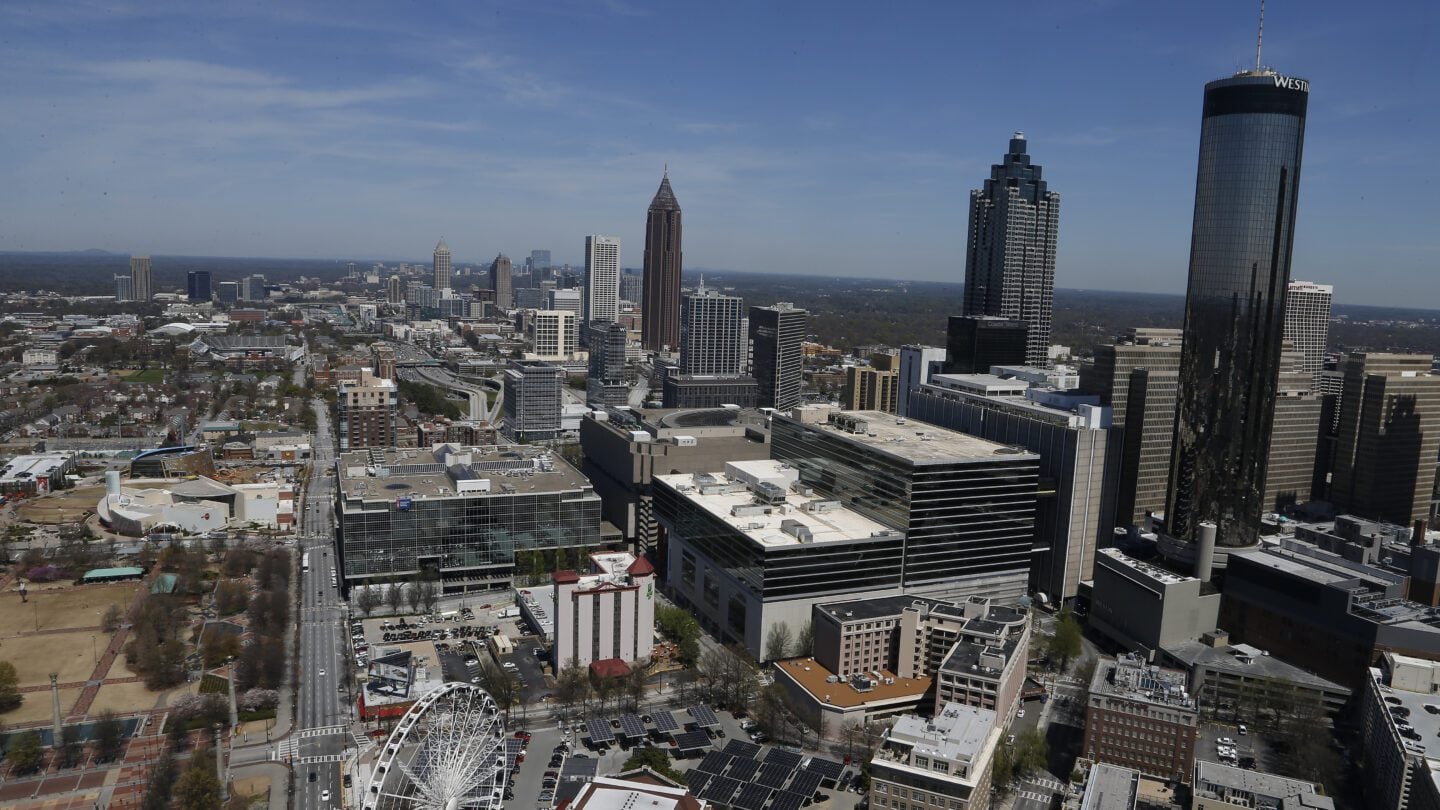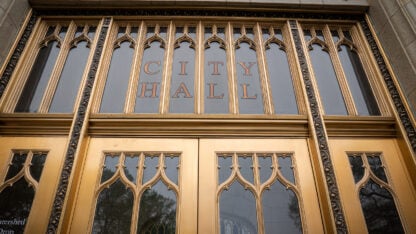The Atlanta City Council did not approve zoning changes that would have allowed the construction of data centers in Adair Park and the West End at Monday’s meeting.
Legislation proposed by Councilmember Antonio Lewis sought to amend a city zoning ordinance that banned data centers within half a mile of MARTA stations and the Beltline. Lewis told WABE his intention was to allow private development to occur in the area.
“My goal in my job is to make sure we see shovels in the ground,” Lewis said.
Early on Monday, Mayor Andre Dickens penned a letter to the council asking members to vote against the zoning changes. He was concerned with how data centers could negatively impact development that the City of Atlanta is planning.
“While important, data centers can also make it more difficult to develop affordable housing, grocery, greenspace, and retail, which are all more suitable projects for the urban core of our city which is why I supported the recent ban on data centers in certain areas recently approved by council,” Dickens said in the letter.
“Moreover, the centers are being pushed into underserved, traditional African American areas that have been starved of equitable development and amenities. This is unacceptable,” he wrote.
Additionally, Dickens said that “people-centered” development such as affordable housing should be prioritized and that data centers are bad urban land use that could contribute to “dead zones” in neighborhoods.
Dickens said the zoning changes were also opposed by a Neighborhood Planning Unit, city planning staff and the Zoning Review Board.
At Monday’s meeting, Lewis called a motion to file the legislation, to which the council unanimously agreed, killing the proposal.
Developing the area
Lewis’ decision to propose the legislation wasn’t based on constructing data centers specifically, he told WABE. Rather, it was about reversing the zoning changes that were passed in September.
The changes banned data centers within half a mile of MARTA stations and the Beltline. Lewis called the changes a “zoning rewrite around the Beltline.”
Those restrictions directly impacted West End Production Park, which owns the property where the parcels of land in question are located. The owners bought the land before the September zoning changes and were led to believe the zoning laws would not change, he said.
“It wasn’t about allowing them to become a data center; it was allowing them to have what they had before this new … ‘blanket legislation’ was created,” Lewis said.
It’s unclear if the owners of West End Production Park have plans to build new data centers.
Lewis said the legislation reversing the changes would only apply to the three parcels of land owned by developers, and the zoning changes passed in September would still apply elsewhere across the city.
Lewis said his intention in proposing the legislation was to bring development to Adair Park and the West End, which are in his district.
Lewis motioned to file the legislation because “the mayor of Atlanta [is] basically saying he’s going to fix it.” He interpreted Dickens’ letter as a commitment from the City of Atlanta to invest in the area on its own terms instead of relying on private businesses.
In his letter, Dickens said that the City is working on major developments in the area. He cited the city’s purchase of the West End Mall and the development of Murphy’s Crossing into a “transformative transit-oriented development.”
“I think that we’re about to get eyes on the south side for the first time in the history of our city or the first time in a long time,” Lewis said.









